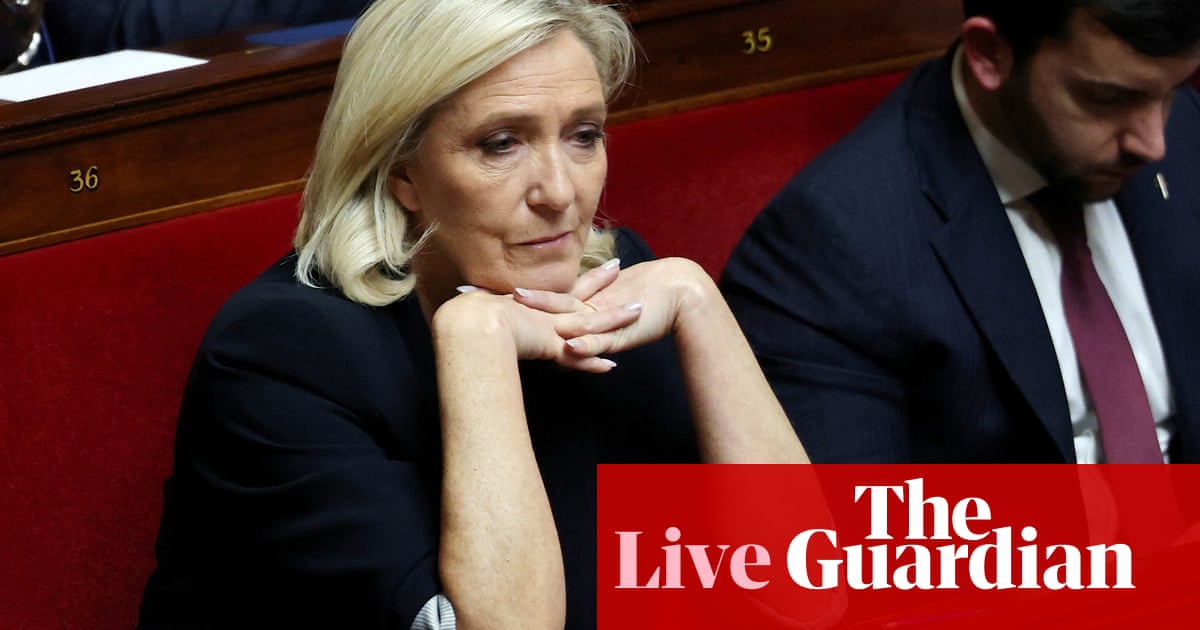The fall of Bashar al-Assad in Syria, the latest in a string of foreign policy reversals for Iran including the weakening of its allies in Lebanon and Gaza, has coincided with growing domestic frustration over rising executions, planned increases in the price of petrol and a proposed law that imposes heavy fines and loss of access to public services to any woman not wearing the hijab.
The confluence of events is putting unprecedented pressure on Iran’s president, Masoud Pezeshkian, to demonstrate what reforms he has introduced since being elected in June. He is viewed domestically as a consensual figure and faces a conservative parliament, but his supporters are impatient for changes that will lift the economy.
Human rights groups say the number of executions in Iran in 2024 has reached 798, with 144 carried out in November alone.
At the same time, the announcement that a compulsory hijab bill has completed all its legal stages and will be implemented within a fortnight has prompted a storm of criticism, and hints of a last-minute delay.
One of the leaders of Iran’s Green protest movement, Zahra Rahnavard, warned that the new law – confirmed by the Guardian Council and the parliament – and scheduled to come into force within a fortnight, could be a flashpoint of resistance against the government. She said she had advised Iran’s rulers “not to go to war with women”.
The 74-article bill has also been criticised by some leading clerics who fear the measure will lead to anti-religious sentiment. An Iranian actor, Anahita Hemmati, posted a picture of herself with her head shaved saying she was willing to be bald all her life since “being a woman in Iran has brought nothing but suffering and humiliation”.
The bill has been nearly two years in preparation and follows nationwide protests that erupted over the death of 22-year-old Masha Amini in police custody in 2022 after she had been arrested by the “morality police” for not wearing the hijab correctly.
The new law imposes escalating fines for flouting the hijab laws that eventually lead to the loss of access to public services, including passports and driving licences. A legal duty is also placed on businesses including hotels and shops to enforce the hijab.
President Pezeshkian has said the bill is “an unjust law [that] will not be enforced, and if it is, it will create discontent”, a stance that suggests he may play for time rather than become embroiled in an all-out confrontation with the conservative-led parliament.
He says his constitutional powers to block a bill are limited.
One measure in the bill allows state offices to install CCTV cameras equipped with facial recognition technology and provide the police with footage when necessary to identify individuals suspected of violating the law.
On the way from prison to hospital, the 2023 Nobel peace prize winner, Narges Mohammadi, was seen being transported on a stretcher without a hijab and shouting “women, life, freedom”, the slogan of the 2022 protesters. She has been granted a 21-day medical release from Evin jail.
The economic situation in Iran has also led to frustration with the country’s interventionist and expensive foreign policies, particularly in Lebanon and Syria, where Tehran has been supporting its allies. The foreign minister, Abbas Araghchi, said in a long TV interview on Sunday that the speed and manner of the Syrian army’s retreat was surprising. He insisted Iran had been in the country initially to fight Islamic State but then withdrew. He said he was confident that Hezbollah, which is dependent on Syrian routes for Iranian arms, was resilient.
Lebanon’s Hezbollah has thanked Iran for providing financial compensation to families made homeless by Israeli bombing during the recent war worth between $8,000 (£6,300) and $14,000 a family. The total value of the aid is $77m and it is expected to be distributed to about 230,000 families.
Pezeshkian, meanwhile, has been considering raising petrol prices, a hugely sensitive issue inside the country. The president has said the cost of heavily subsidised petrol was hitting the budget.
A US state department report in 2018 claimed Iran had spent $18bn (£14m) propping up the regime of President Bashar al Assad since 2011.

.png) 3 months ago
28
3 months ago
28













































